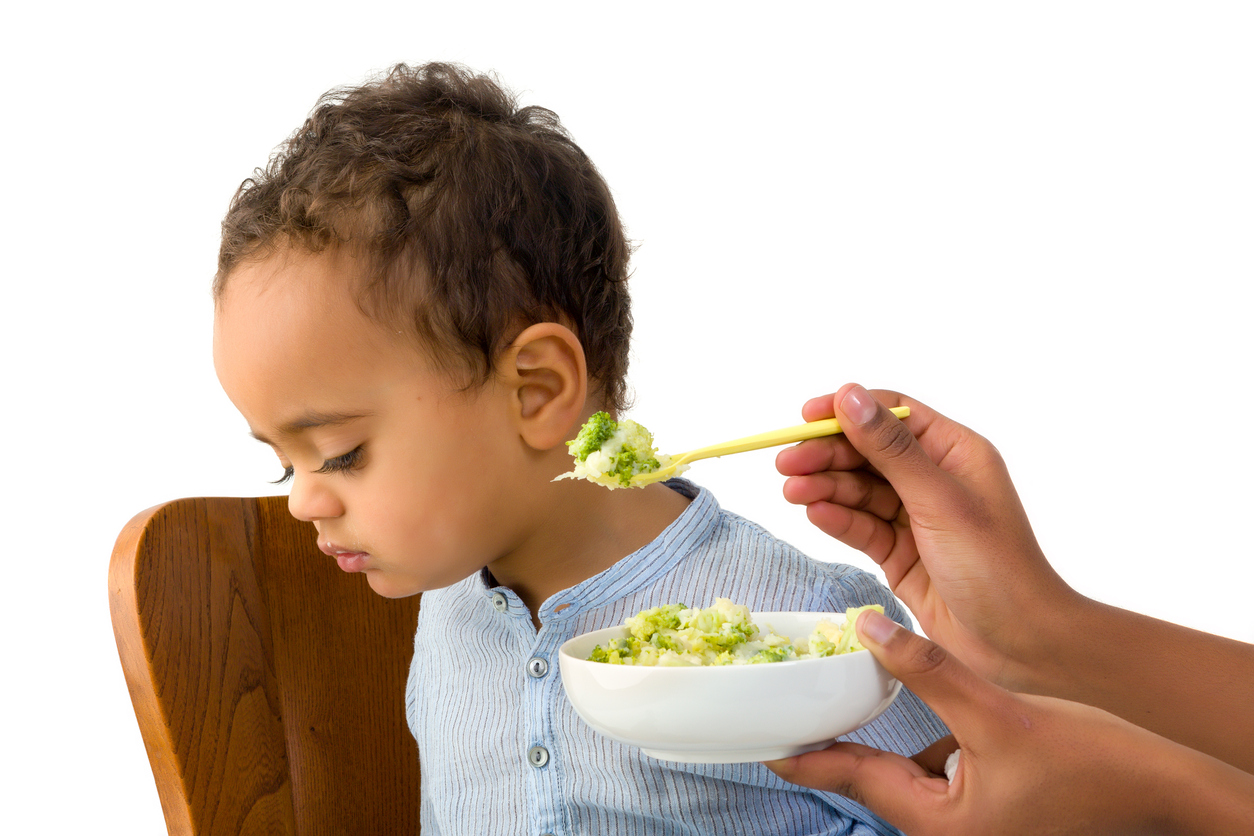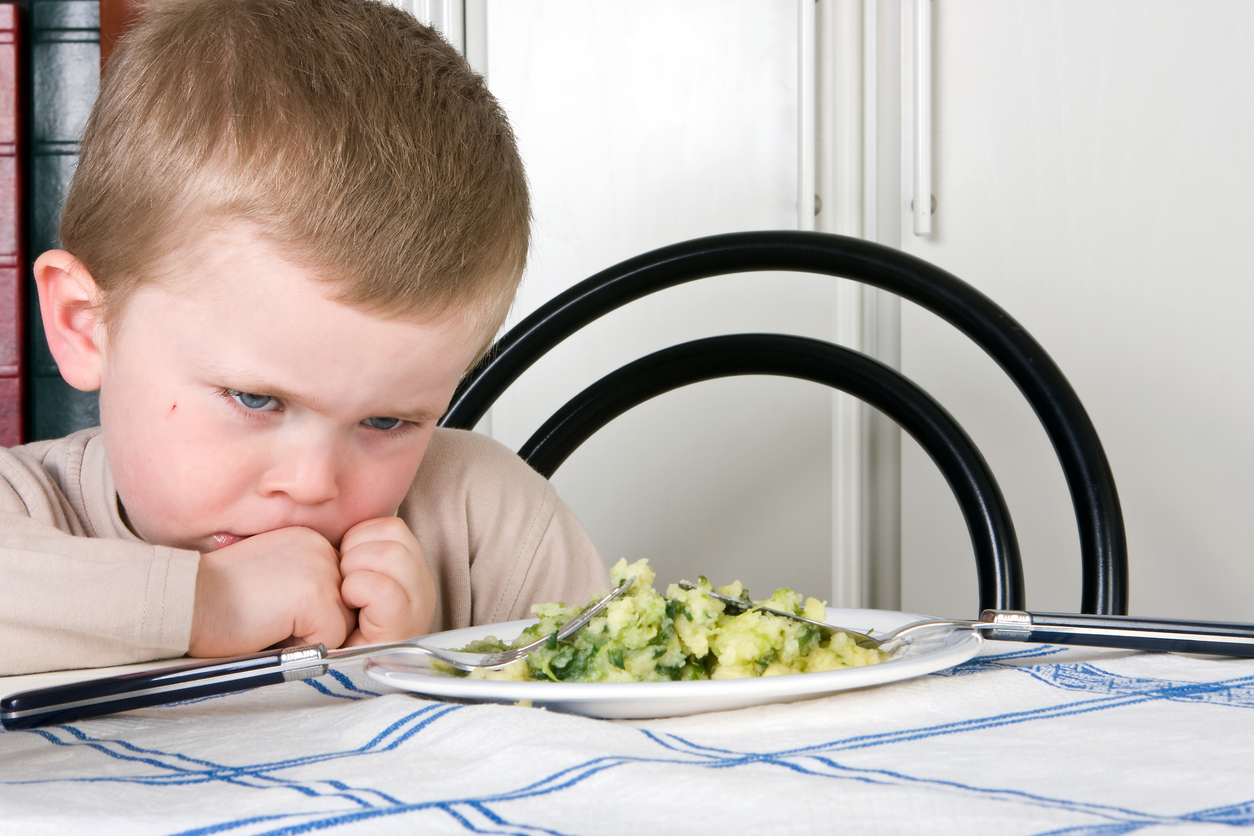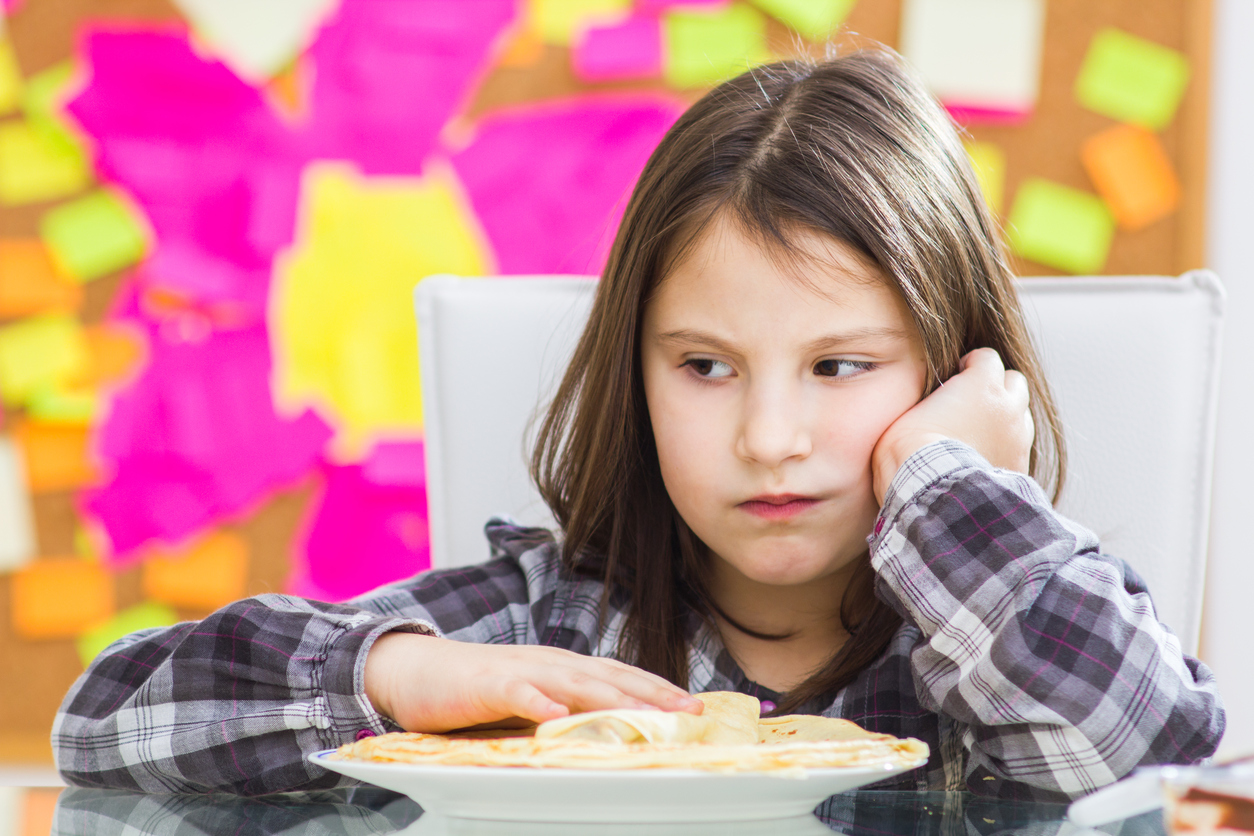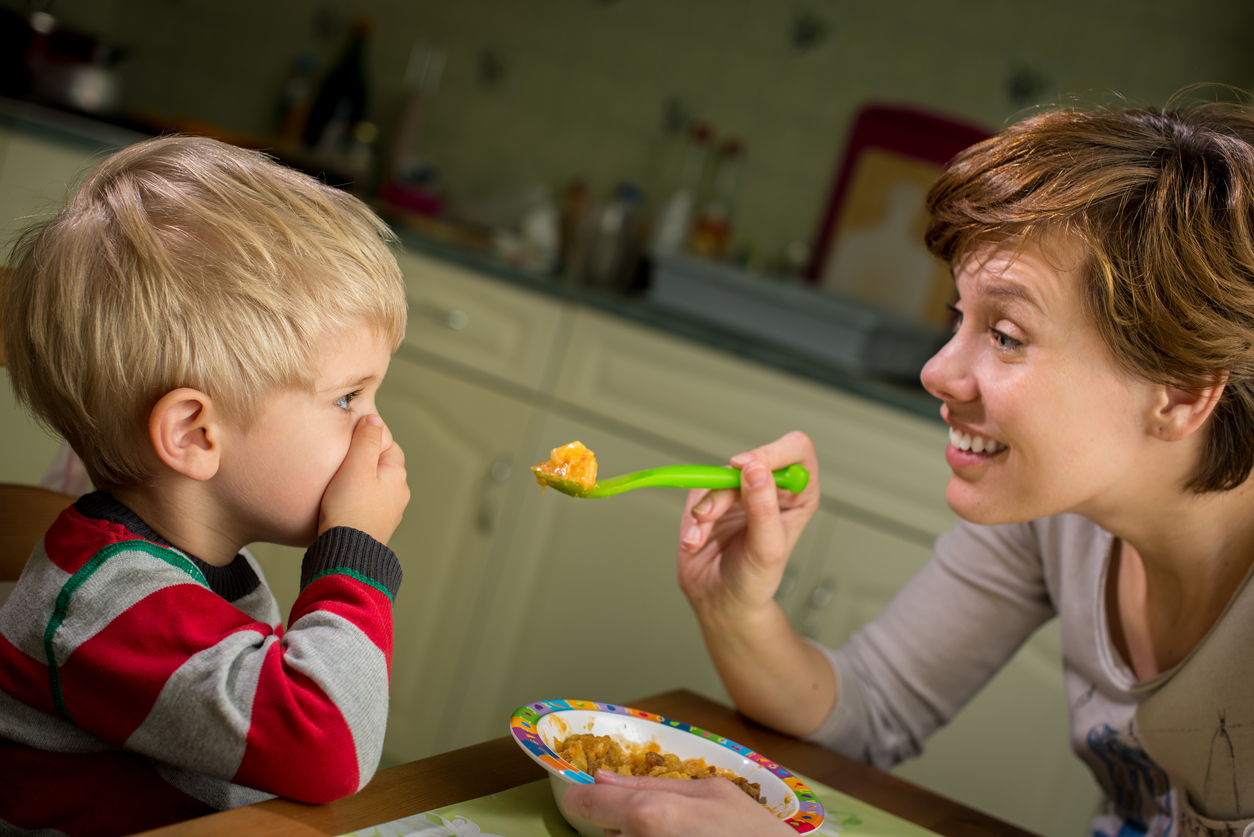Parents of kids who are picky eaters understand the struggle and frustration of having your kid think anything green or protein-rich is the enemy. And as any mom or dad of a fussy eater can attest, there are some foods your kid likes one day and completely refuses the next. There is science behind it all, and we discovered some weird and surprising facts about picky eaters.
All kids are different, and these facts may not all apply to your child, but they're really interesting to ponder. Plus, it does explain why mom's aversion to garlic is more likely to be an aversion for her kid too. Read on.
Supertasters exist.

There is such thing as "supertasters," a term first used by Yale University's Linda Bartoshuk, according to Smithsonian magazine. Supertasters taste everything more strongly than the average person, which isn't a good thing. It can overpower the senses, making bitter foods overwhelmingly bitter, for example. Could be the cause of some kids' picky eating.
A mom's diet could make her kid more picky.

Moms like to blame themselves for everything — even if it's beyond their control. But there is some evidence that suggests that the food a breastfeeding mom eats affects the taste of her breast milk. So if mom ate a lot of fruits and veggies while she was nursing, her kid may end up with a taste for them, since he's already sampled their flavors. But if her diet was lacking in certain foods, her kid may not be keen on them.
It's in our genes.

According to Natasha Chong Cole, a doctoral student in nutritional sciences, in an interview in the Atlantic, genes can help determine if someone is a picky eater. For example, Cole said the gene "TASR38" determines a person's liking and sensitivity to bitter foods and there are other genes for other tastes. So picky eating can be something your kid inherits.
Peer pressure matters.

Generally, peer pressure is thought of as a bad thing, but when it pertains to picky eating, it can be good. According to Parenting Science, preschoolers and older kids were more likely to taste and even prefer foods they saw their friends eat.
More from CafeMom: My Picky Eater Devours Healthy Snacks From Other Moms but Not From Me — What Gives?
It's not just about taste.

Presentation isn't just important for fancy restaurants; it matters when we feed our kids, too. Dr. Faye Powell, a developmental psychologist, told HuffPost that what food looks like matters to a kid — burned toast could look like dirt to them, just like spaghetti could look like worms. This alone could make a kid not want to eat it, essentially creating a picky eater.
Picky eating is linked to personality traits.

Dr. Powell also told HuffPost that a shy kid is more likely to not try new food; the same goes for those who are more emotional. A child who is more impulsive is more likely to try new foods.
Let kids play with food.

It may not feel right to let your kid to play with their food instead of eating it, but there's evidence that food play can help a picky eater — as long as it's not at the dinner table. Therapists suggest putting the foods your child typically turns away in with their toys in a playful way that makes sense to them. For example, put carrots and broccoli in a toy dump truck or a bunch of foods in a toy fish tank. Allowing kids to touch, feel the texture, smell, and smash the foods lets the kids be more comfortable with it all, away from the pressure of the dinner table. This could motivate kids to taste those foods when they're presented during a meal.
More from CafeMom: Scientist Says Making Kids Eat Breakfast Is 'Child Abuse'




